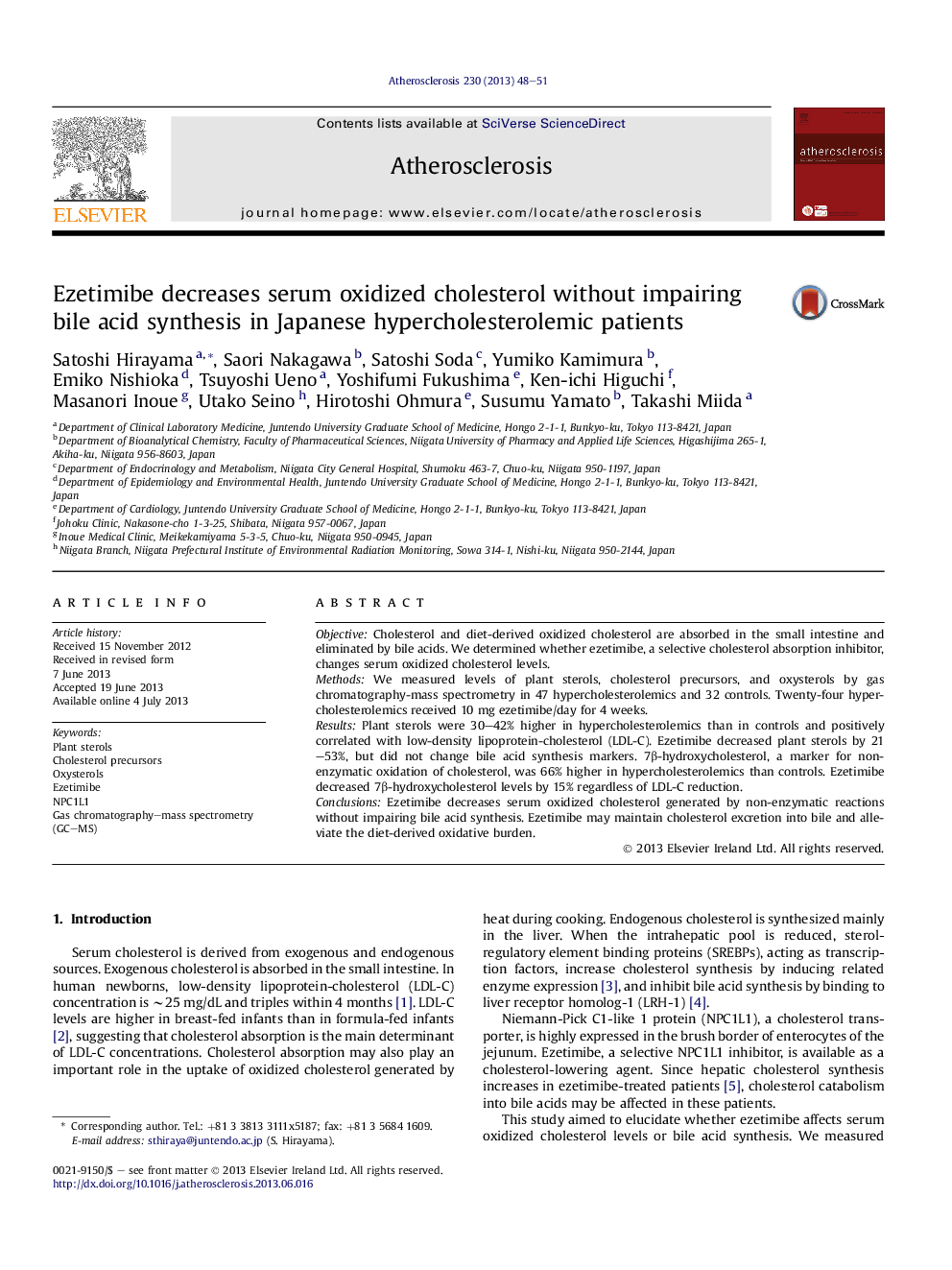| Article ID | Journal | Published Year | Pages | File Type |
|---|---|---|---|---|
| 2892705 | Atherosclerosis | 2013 | 4 Pages |
•Sterol markers were assayed by gas chromatography-mass spectrometry.•Plant sterols and 7β-hydroxycholesterol were higher in hypercholesterolemic patients.•Serum LDL-C concentrations were positively correlated with these markers.•Ezetimibe decreased these markers without impairing bile acid synthesis.
ObjectiveCholesterol and diet-derived oxidized cholesterol are absorbed in the small intestine and eliminated by bile acids. We determined whether ezetimibe, a selective cholesterol absorption inhibitor, changes serum oxidized cholesterol levels.MethodsWe measured levels of plant sterols, cholesterol precursors, and oxysterols by gas chromatography-mass spectrometry in 47 hypercholesterolemics and 32 controls. Twenty-four hypercholesterolemics received 10 mg ezetimibe/day for 4 weeks.ResultsPlant sterols were 30–42% higher in hypercholesterolemics than in controls and positively correlated with low-density lipoprotein-cholesterol (LDL-C). Ezetimibe decreased plant sterols by 21–53%, but did not change bile acid synthesis markers. 7β-hydroxycholesterol, a marker for non-enzymatic oxidation of cholesterol, was 66% higher in hypercholesterolemics than controls. Ezetimibe decreased 7β-hydroxycholesterol levels by 15% regardless of LDL-C reduction.ConclusionsEzetimibe decreases serum oxidized cholesterol generated by non-enzymatic reactions without impairing bile acid synthesis. Ezetimibe may maintain cholesterol excretion into bile and alleviate the diet-derived oxidative burden.
